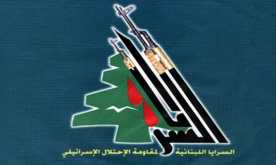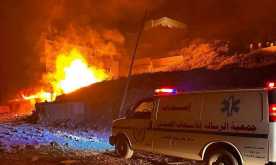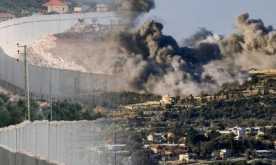

ماذا بعد اكتشاف حقل الغاز الجديد في حقل "كاريش" في إسرائيل؟
بارودي: ضرورة وضع لبنان أسس اتفاقات ترسيم حدود بحرية مع قبرص وسوريا
ميريام بلعة
المركزية- يُظهر الاكتشاف الأخير للغاز في حقل "كاريش" الواقع في جنوبي لبنان، بغاية الوضوح أن على لبنان فعل كل ما في وسعه ليمهّد الطريق أمام صناعة النفط والغاز البحرية الخاصة به، وعلى وجه التحديد من خلال تسوية الحدود البحرية مع قبرص وسوريا، وفقًا لأحد أهم الخبراء في المنطقة في مجال الطاقة.
وفي مقابلة عقب إعلان شركة إنرجيان اليونانية - الإسرائيلية عن اكتشاف ثانٍ في حقل "كاريش" المتاخم للمياه اللبنانية، يكشف خبير الطاقة الدولي رودي بارودي الذي يتمتع بخبرة تزيد عن أربعة عقود في مجال الطاقة، أن "هذه الأخبار جيّدة بالنسبة إلى لبنان".
ويقول بارودي، الذي يشغل حاليًا منصب الرئيس التنفيذي لشركة الطاقة والبيئة القابضة وهي شركة استشارية مستقلة مقرها في الدوحة - قطر، لـ"المركزية": ليس مستغرباً أنهم وجدوا المزيد، فذلك يؤكد ما كنا نعرفه منذ سنوات عدة. ولم نتمكن من تحديد موقع جميع الموارد الموجودة في قاع بحر شرق المتوسط، بما في ذلك الرواسب النفطية التي تنتظر الاكتشاف قبالة سواحل لبنان. المشكلة أن المأزق السياسي المعقّد الذي يعيشه لبنان قد تسبّب بتأخيرٍ كبير في تطوير قطاع الهيدروكربونات البحرية الناشئ في البلاد".
ويؤكد أن "الاكتشاف الجديد يقع بالقرب من خط الحدود البحري (MBL) الذي اتفق عليه لبنان وإسرائيل في تشرين الأول/ أكتوبر 2022"، ويوضح أن "هذا الاتفاق الذي تم التوصل إليه بعد وساطة استمرت سنوات من قِبَل الولايات المتحدة، كان "خطوة ضرورية"، لكنه لم يكن كافياً وحده لتنشيط صناعة النفط والغاز في لبنان وتفعيلها بشكل كامل".
ورداً على سؤال عن كيفية المضي قدماً في بيروت في هذه المرحلة، يشدد بارودي على "أهمية التقدّم في الجهود الرامية إلى وضع اللمسات النهائية على اتفاقات ترسيم الحدود البحرية بين لبنان وقبرص وبين لبنان وسوريا، والتي من شأنها أن تحقق اعترافاً دولياً كاملاً بالمنطقة الاقتصادية الخالصة للبنان، وبالتالي تقليل المخاطر التي تواجهها شركات النفط الكبرى التي يحتاج لبنان إلى خبرتها ومساعدتها للتمكن من إجراء عمليات استكشاف واستغلال موارده البحرية بشكل مفيد وكامل".
ويُضيف: لقد تفاوضنا سابقاً على ترسيم الحدود البحرية مع قبرص، لكن المجلس النيابي اللبناني لم يصادق على الاتفاقية. وهذا يعني أنه يتعيّن علينا أن ننطلق من النقاط المتَّفق عليها في المباحثات السابقة وأن نُضيف إليها بعض الإحداثيات من أجل تحديد نقطة تقاطع ثلاثية حيث تتقاطع خطوط الحدود البحرية اللبنانية والقبرصية والإسرائيلية في البحر. وتحديد هذا المثلث في الجنوب سيبسّط تلقائياً عملية تحديد مثلث آخر في الشمال بين لبنان وقبرص وسوريا.
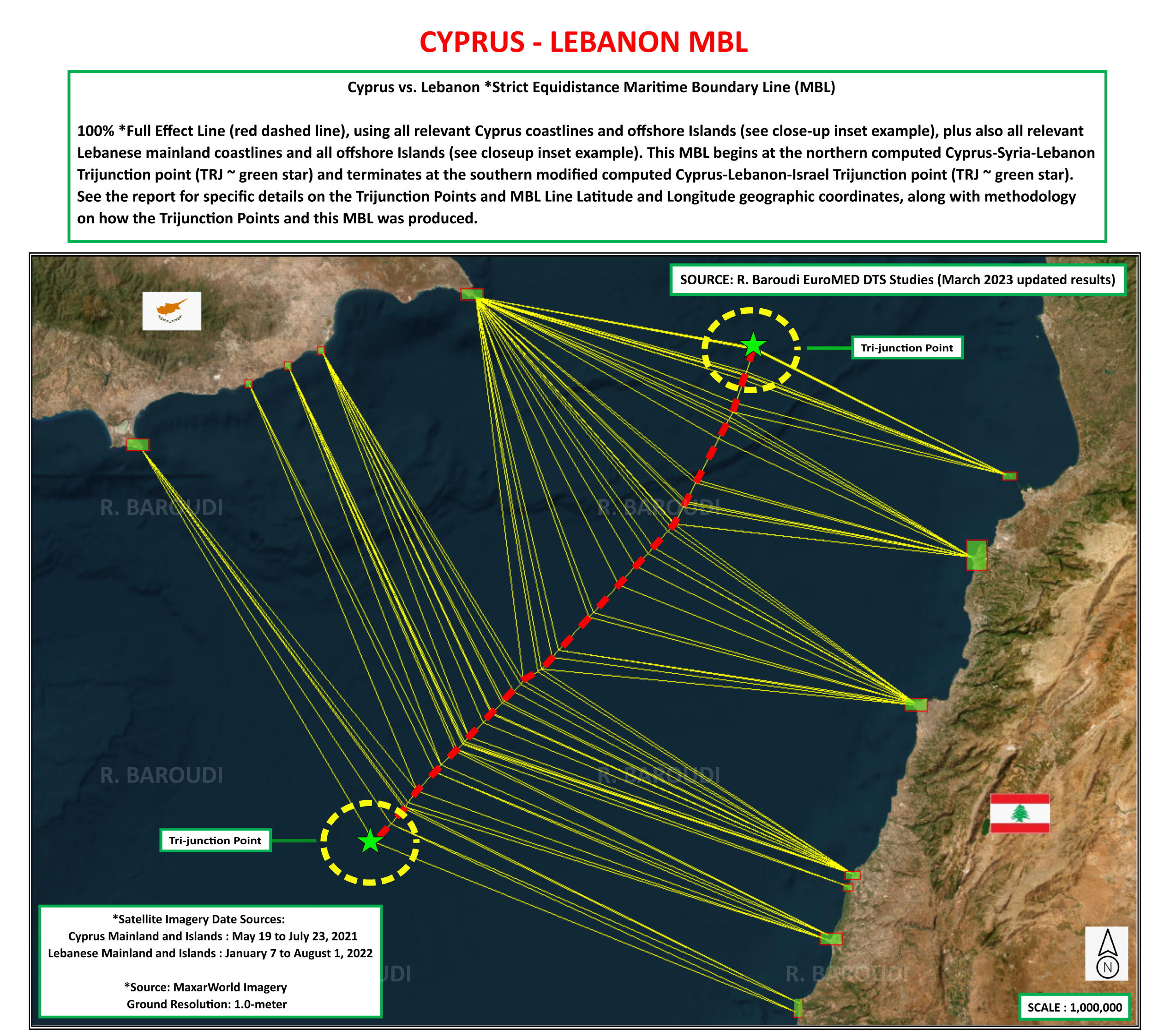
الفجوة اللبنانية – القبرصية - الإسرائيلية
وفي السياق، يقلل بارودي من شأن المزاعم التي تتحدث عن وجود فجوة كبيرة بين الخط اللبناني - القبرصي والخط القبرصي - الإسرائيلي، مما يزيد من صعوبة تحديد الخط الثلاثي. ويقول: هناك فجوة بالطبع، لكنها في الحقيقة صغيرة جدًا. والدليل على ذلك هو ترسيم حدود المناطق البحرية التي أصدرها كل من لبنان وقبرص منذ حوالي عقد من الزمن. إضافة إلى أن جميع الخرائط الدولية للمنطقة، بما في ذلك تلك الصادرة عن شركات النفط والغاز والتي ترتكز في الأصل على تصوير دقيق للحدود والمساحة، لا تؤشر إلى أي تداخل بين لبنان وقبرص. في الواقع، إن الخط الفاصل بين الكتل اللبنانية والقبرصية يتبع بدقة خط ترسيم الحدود البحرية MBL المتفق عليه والذي وافقت عليه نيقوسيا وبيروت في الاتفاقية التي لم يتم المصادقة عليها. أما الفرق في الجانب الجنوبي من نقطة التقاطع فهو صغير جدًا.
ويُضيف: نظراً إلى أن الخطوط قريبة جداً، فإن تحديد تقاطع ثلاثي - النقطة التي تتقاطع فيها الحدود اللبنانية والقبرصية والإسرائيلية - يجب أن يكون سهلاً نسبياً. بالإضافة إلى ذلك، فإن الاتفاق على هذا التقاطع الثلاثي في الجنوب من شأنه أن يبسّط تلقائياً عملية تحديد تقاطع ثلاثي في الشمال بين لبنان وقبرص وسوريا. من دون أن ننسى أن لبنان يتمتع بعلاقات ودية وقوية مع كل من قبرص وسوريا، وبالتالي فإن المفاوضات معهما ستكون أكثر وديّة من تلك التي جرت مع إسرائيل، والتي كان لا بد من متابعتها بشكل غير مباشر عبر وساطة أميركية.
ولدى سؤاله عن كيفية تأثر أي جهود ديبلوماسية جديدة لترسيم الحدود البحرية، بالشلل السياسي المستمر منذ فترة طويلة في بيروت، حيث يعاني لبنان من شغور في رئاسة الجمهورية منذ أواخر العام 2022 لأن البرلمان اللبناني لم يستطع انتخاب خلف للرئيس السابق ميشال عون، يُجيب بارودي: هذا المأزق يؤكد ضرورة اتخاذ إجراءات جديدة.
ويقول: صحيح أن لبنان لا يستطيع في الوقت الحالي، المصادقة رسميًا على اتفاقية ترسيم حدود بحرية MBL جديدة مع قبرص أو سوريا لأنها تتطلب توقيع رئيس الجمهورية عليها، لكن هذا لا يمنعنا من إجراء المحادثات التقنية اللازمة. في الواقع، يجب أن نسارع إلى تسوية كل هذه الأمور الآن، حتى عندما نملأ المنصب الشاغر في قصر بعبدا، يكون كل شيء جاهزاً لتوقيع الرئيس الجديد.
وإلى جانب تسوية حدوده البحرية، يقول بارودي إن "لبنان لديه أيضًا سبب آخر لتفعيل المفاوضات مع الدول المجاورة"، ويذكر في هذا المجال: مرّ ما يقارب العشر سنوات منذ أن اقترحت قبرص اتفاقية تنمية مع لبنان للإنتاج المشترك من أي مخزونات موجودة على الحدود البحرية المشتركة. وهذا الأمر مهم جداً للبنان وللصناعة النفطية فيه، وللأسف فقد حال الشلل السياسي اللبناني دون حدوث ذلك. بالفعل نحن بحاجة إلى إحياء هذه العملية والتوصل إلى اتفاق في أسرع وقت ممكن.
..."في حال البدء بهذه العملية وبمجرد أن يكون لدينا رئيساً للجمهورية، نكون مستعدين للانطلاق بسرعة من دون مزيد من التأخير، والبدء بجَمع عائدات الغاز التي يحتاج إليها الاقتصاد اللبناني بشدة" يختم بارودي.
EAST MED INTERVIEW:
What’s next after new Energean gas discovery in Israel’s Karish North Field?
Expert underlines need for Lebanon to lay groundwork for maritime boundary deals with Cyprus and Syria

DOHA/BEIRUT – By Myriam Balaa: Israel’s latest undersea gas find further demonstrates that Lebanon should be doing everything it can to pave the way for its own offshore oil and gas industry, specifically by settling its maritime boundaries with Cyprus and Syria, one of the region’s foremost authorities on energy development says.
In an interview following Greek/Israeli-owned Energean’s announcement of a second discovery in the Karish North Field adjacent to Lebanese waters, energy consultant Roudi Baroudi said the news was actually good for Lebanon.
“It’s no surprise that they found more. It just underscores what we’ve known for several years: we haven’t located all the resources tucked away beneath the seabed of the East Med, including deposits awaiting discovery off Lebanon’s coast,” said Baroudi, who has more than four decades of experience in the energy business. “The problem is that Lebanon’s ongoing political quagmire has caused significant delays in the development of the country’s nascent offshore hydrocarbon sector.”
Baroudi, who currently serves as CEO of Energy and Environment Holding, an independent consultancy based in Doha, Qatar, confirmed that the new find seemed to be located very close to the maritime boundary line (MBL) agreed to by Lebanon and Israel in October 2022. That agreement, reached after years-long mediation by the United States, was a “necessary step”, he explained, but “it alone has not been sufficient to fully activate Lebanon’s oil and gas industry.”
Asked how Beirut should proceed at this juncture, he stressed the importance of moving ahead with efforts to finalize Lebanon’s MBLs with Cyprus and Syria, “which would achieve full international recognition of Lebanon’s Excusive Economic Zone, thereby reducing the risk for the big energy companies whose assistance we need in order to fully explore and exploit our offshore resources.”
“We’ve already negotiated the different equidistance points for a completed MBL agreement with Cyprus, we just haven’t ratified it,” Baroudi explained. “That means we just have to adjust a few coordinates in order to set a trijunction point where the Lebanese, Cypriot, and Israeli MBLs intersect at sea. And setting that trijunction in the south will automatically simplify the process of setting another in the north for Lebanon-Cyprus-Syria".
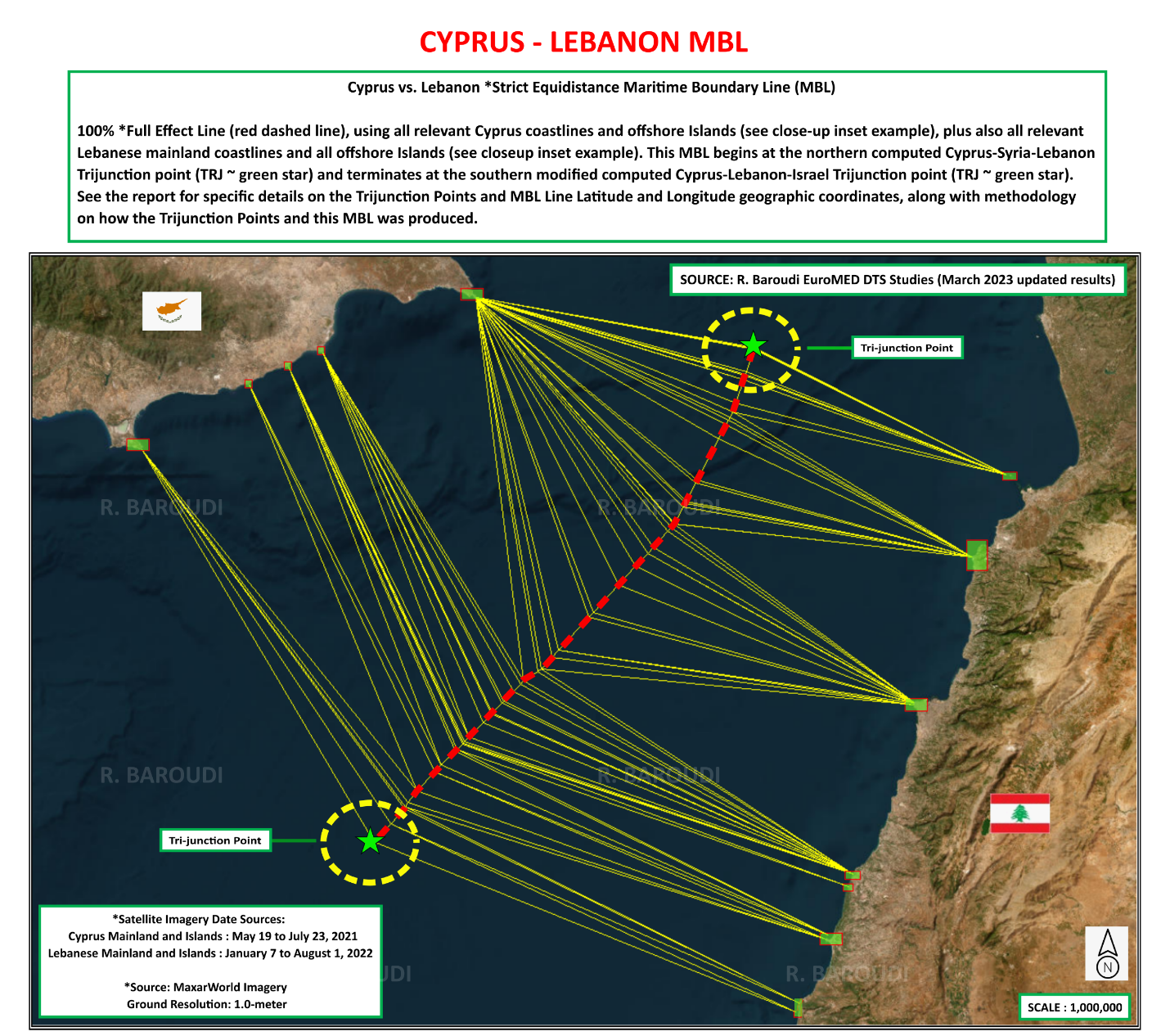
He also played down claims in some circles that a significant gap exists between the Lebanon-Cyprus line and the Cyprus-Israel line, making it more difficult to set a trijunction.
“There is a gap, of course, but it’s really quite small,” Baroudi told the reporters “The proof of this is in the delineation of the offshore blocks issued by both Lebanon and Cyprus about a decade ago. On all the international blocks maps of the area, even including the ones issued by the oil and gas companies, which focus on accurate portrayals of acreage, there is no overlap. In fact, virtually all of the line between Lebanese and Cypriot blocks precisely tracks almost a MBL line agreed which Nicosia and Beirut agreed to in the unratified agreement. The difference at the southern end of the trijunction point is very, very small.”
The smaller the gap, he explained, the easier it should be to finish defining Lebanon’s EEZ.
“Since the lines are so close, setting a trijunction – the point where the Lebanese, Cypriot, and Israeli boundaries intersect – should be relatively easy,” he said. “In addition, agreeing that trijunction in the south would automatically simplify the process of setting one in the north for Lebanon-Cyprus-Syria. And keep in mind: Lebanon has strong & friendly relations with both Cyprus and Syria, so these negotiations will be a lot friendlier than the ones with Israel, which had to be pursued indirectly via American mediation.”
When asked about how any new diplomatic efforts might be affected by the long-running political paralysis in Beirut, where the presidency has been vacant since late 2022 because rival parties in Parliament can’t agree on a successor to former President Michel Aoun, Baroudi said the quagmire only accentuated the need for action.
“Right now, Lebanon can’t officially ratify into a new MBL agreement with either Cyprus or Syria because it requires a presidential signature, but that doesn’t stop us from carrying out the necessary talks,” he said. “In fact, we should be rushing to get all of this settled now so that when we finally fill the vacancy at Baabda Palace, we’ll have everything ready for the new president’s signature.”
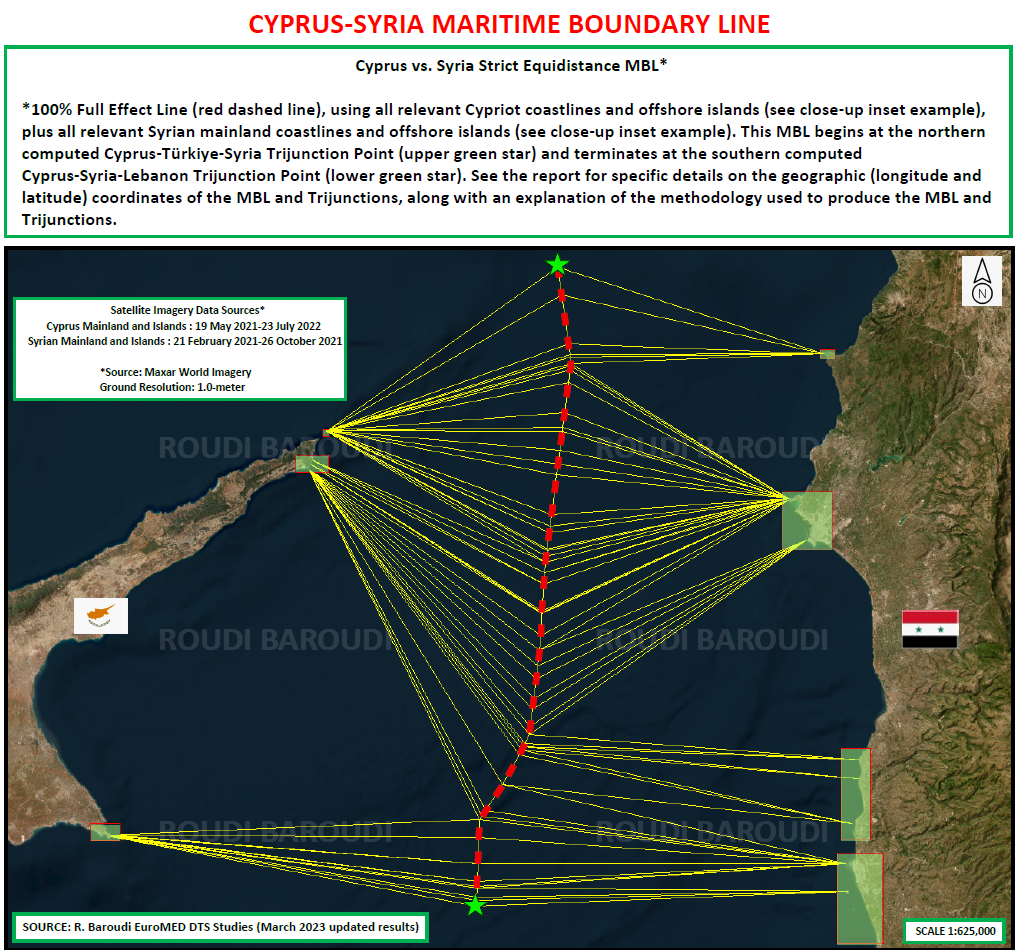
In addition to settling its maritime boundaries, Baroudi said Lebanon also had another reason to re-engage with neighboring countries.
“It’s been almost ten years since Cyprus proposed a unitization agreement (joint development agreement) with Lebanon for joint production from any deposits that straddle their shared MBL,” he recalled, “and the Lebanese paralysis has kept it from happening. We need to revive this process and get a deal in place. That way, again, once we have a president in office, we’ll be ready to hit the ground running, with no further delays, and start collecting the badly needed gas revenues".



